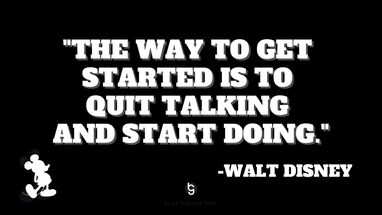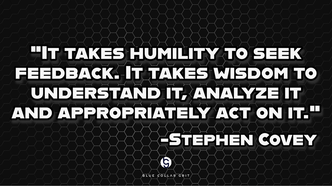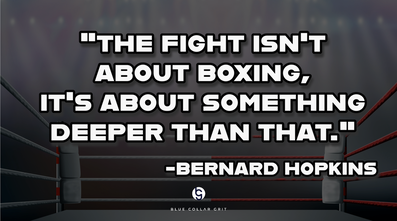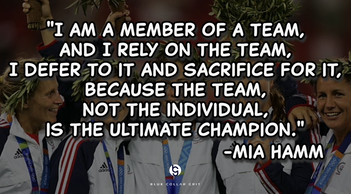Just Getting StartedIt seems everyone in the sports world now is “just gettin’ started”.
The player winning NBA Rookie of the Year this season will likely claim he’s “just getting started”. On a similar note, the 2nd grader winning the Carrysville Southeast All Star Elite Fall White Division Showcase MVP is also “just getting started.” The team winning their first NFL playoff game will surely proclaim they are “just getting started”. But, so will the 3rd grade Wee Tiger Flag Football Silver Division Runners-up. It’s such a popular calling card that there are even a number of songs titled “just getting started”. Country music stars Jason Aldean and Blake Shelton to Christian singer Jeremy Camp to rapper RJAE have all recorded songs titled “Just Getting Started”. There’s even a few movies with the title, one starring Morgan Freeman and Tommy Lee Jones. And of course, who could forget, High School Musical 3: Senior Year, Just Getting Started. That’s correct: High School Musical 3: Senior Year is … just getting started. Why Should We Care? While most people, and teams, seem to be pulled towards the motto we are doing everything we can to distance ourselves from it. I see the hope it attempts to provide and I understand the allure of embarking on a new, promising commitment to excellence. But, that’s not where we are and, I’m guessing, it’s not where you are either. We are not “just getting started”. Not even close actually. We’re still going. I’ll use our morning breakfast club workouts as a quick example. Most of our players began attending when they were freshmen, those beginning before that simply extrapolate the example. With one hundred eighty two days of school, we’ll use one hundred fifty as our number for breakfast club workouts each year. We don’t miss many days but with dead periods, gym conflicts, and personal schedules a few days throughout the year will be breakfast club free. The breakfast club is simply a one hour workout our players perform with a partner. Nothing fancy, or tricky, just consistent. If a player attends for 150 days for four years he will have devoted an additional six hundred hours of work to his game. That’s twenty five full days of development a regular breakfast club attendee gets that someone who doesn’t attend would receive. Now for the team implications. Our breakfast club typically has twenty to thirty players every morning. So, take those extra six hundred hours and multiply them by, we’ll say twenty-five. That’s fifteen thousand hours of breakfast club work for our team. Fifteen thousand hours. That’s not just getting started. We’re still going. (As side note, when we were truly “just getting started” Breakfast Club had one attendee for two straight years - shout out to Joey, our Breakfast Club OG) REAL TALK - Action Steps Don’t get me wrong, we all have to start some time. But, I’ve noticed a significant difference between the people who proclaim their start as a means to seek recognition and approval and the people who just start and seek the benefit of the process that follows. Here are a few ideas on staying fixed on the latter:
We do realize who isn’t saying “just getting started”, right? Correct, the people that have been doing it - quietly and consistently. Those people are still going. And, as long we are always “just getting started” we won’t realize the compound effects of still going. For more information on building excellence in your teams, visit us at www.bluecollargrit.com. We would love to know how we could help!
1 Comment
Anonymous FeedbackBasketball season is just around the corner. As I prepare for the start of the season, there are numerous, very important items I have to be sure are taken care of in order for our season to get off to a clean start. As a high school coach you are the CEO of your program, but you’re also the secretary, custodian, and emergency contact.
Among all the tasks that must be completed, one of the most impactful for the development of our team is our practice evaluations. Each season I will invite several coaches, whom I respect, to evaluate and give me feedback on our players and our practice. These people rarely have basketball knowledge, so I often get asked how their opinions and feedback can help. It’s really pretty simple. The people I invite understand the process required to be excellent. That’s one of the best things about excellence, its habits apply to all fields. All of the feedback is useful, but maybe not in the exact way it’s meant or the package it’s delivered in. Why Should We Care? In the last fifteen years, we’ve probably had close to one hundred coaches in to watch and evaluate practice. Their feedback has provided our staff and players with phenomenal insights that we would’ve never recognized on our own. For example, a few personal areas I’ve grown in as a result of these evaluations are the tone of my feedback, where I’m physically standing while coaching in practice, the difference in detail I accept from different players, and lack of interaction between coaches during a session. I’m significantly better and our team has benefited equally from this, and many other, observer’s feedback. However, the changes weren’t immediate growth points - they began as pain points. The criticism of my tone when delivering feedback in practice was delivered as, “you sound pissed off all the time” when you are correcting someone. My initial, internal, response was something like, “yea, I am pissed - it’s the tenth time I’ve told him the same thing”. Though it wasn’t comfortable to hear, nor always true, the observation pushed me to reflect. There were numerous times in which I certainly did not intend to sound angry. I simply wanted to convey information and hope that the player was capable of doing what was expected of him. Fortunately, this feedback offered me an opportunity to move that from intent to reality. The same is true for the others noted above. Where I stand in practice was shared from an evaluator as “you look like you’re distancing yourself from the team”. In my reflection, this was accurate but it wasn’t intentional. There are certainly times in practice in which I feel like I need physical distance in order to see the big picture of our team play. But, I recognize that is not all the time. There are clearly times I need to be right in the mix with our guys - slapping fives, offering encouragement, and giving direction. This feedback simply brought awareness. Awareness that has allowed me to be more intentional with my daily actions and impactful with our team. Likewise regarding the lack of interaction with coaches during practice. The observer viewed this as a negative when he presented it to me. As we discussed it, I was reaffirmed with how we were spending our time in practice. Because our coaches were constantly interacting with the players, there was little time for them to engage with each other. Though, the feedback was perceived as a negative, it served to reinforce the actions we wanted modeled. Although I always know the coaches we invite to evaluate our practices and they write their names at the top of the assessment form, as far as we’re concerned the feedback is anonymous. The observations are what we are interested in - how are the behaviors being observed and interpreted by those outside ourselves and our team? From there, it’s our choice on how, or if, we want to use them. REAL TALK - Action Steps There is a popular clip on YouTube of Kobe Bryant talking about his belief that failure doesn’t exist. He points out that all the seeming failures we experience are really nothing more than data points for our next try. It’s only a failure if you quit trying. Feedback is very much the same way. Regardless of who gives it, feedback is simply data. Data to be used by you in whatever way you see fit. Once it’s delivered, it’s your job to process it. You are the one with the power to use or discard it. Here are a few ideas on maintaining this perspective and making the feedback you give and receive as useful as possible. Receiving
Giving
Feedback is critical to our growth and development. We are best served to treat it as anonymous, focusing solely on the data. All while recognizing that the choice of using, or not using, the feedback lies with one person: the receiver. For more information on building excellence in your teams, visit us at www.bluecollargrit.com. We would love to know how we could help! Love the FightAs part of our preseason conditioning program at Centerville, we will do a number of different workouts designed to physically better our performance on the basketball court. Anything from sprints on the track, hill climbs, weightlifting sessions, and Crossfit workouts could be on the schedule.
Of course, we play a lot of basketball too. We don’t like to make it too complicated. We believe the best way to get better at basketball is to play basketball. As simple as that sounds, it transcends sports. The preseason is obviously a time where we are not only trying to get players into the necessary shape to compete at a high level, but we’re also evaluating. Skill, potential, and possible roles are all things we look at as coaches. However, there is one trait we believe is critical for a player to reach his potential and a team to surpass its ceiling: a love for competition. Why Should We Care? A passion for your craft is no doubt a powerful motivator. A strong enough passion for something helps us view adversity as merely a part of the process rather than as a true obstacle to be overcome. One of the natural problems that arise for passionately driven individuals is that it often ends up being compartmentalized. I may be passionate for basketball, for example, so anything that has to do specifically with basketball, I’m all in for. The problem arises when I realize there are numerous things outside the arena of basketball that impact my performance within basketball. Sometimes this passion is strong enough to spill over and influence other areas of my life, but rarely will it have the ability to sustain my focus, discipline, and personal accountability long enough for me to reach my potential. People who are able to maximize their potential are typically not passionate about a specific thing - sport, occupation, or career. They’re passionate about a process. And, that process is always centered around pushing and challenging themselves. They don’t love basketball. They love the fight to become the best basketball player they can become. This is the mindset that transcends a sport or career. The world has enough people that are great at their sport yet terrible husbands, incredible at their job but absent in the lives of their kids, climbing the corporate ladder at the expense of everyone around them. This is a compartmentalized mentality with a selfish focus on one’s self. It’s also a clear indication of an external comparison rather than an internal competition. When we love the fight, the fulfillment is rooted in the process. When we love our job, our identity tends to get sucked into our position, status, or salary. The fight is the process. The struggle is the reward. REAL TALK - Action Steps Truly enjoying the fight isn’t something that comes naturally to most people. We are so conditioned to seek things that we conveniently disregard how we get those very things we seek. Awareness is the first step to change, so here are a few ideas on where we need to learn to love the fight.
Loving the fight is a form of embracing the process. Everyone loves the accolades and bonuses that go with being successful, but most people don’t love the fight. But, most people are not striving to be excellent either. For more information on building excellence in your teams, visit us at www.bluecollargrit.com. We would love to know how we could help! Questions of a TeamTeams were created for a single purpose: to do things an individual can’t do.
That’s it. From the hunter and gather days to the modern multi-million dollar, Wall Street companies, the purpose of bringing a people together remains exactly the same. If left to our preference, and ego, we would undoubtedly go it alone but we simply can’t. As a matter of fact, that’s exactly what many individuals continue to try to do while a member of a team. In spite of the ‘team’ label, in spite of their teammates, in spite of the urging of coaches - some continue to press against the foundational purpose of a team. Our choices prioritize ourselves over our teammates and our actions communicate our selfish interests no matter how much we try to conceal them. It’s as natural as it is ignorant. What we are pursuing is bigger than we can accomplish on our own, yet we still try. We continue to overestimate our importance to the group. We continue to spill over into the roles of teammates. We continue to attempt to save the team with our own valiant effort. All to achieve something that we knew from the start was only achievable by a team. Why Should We Care? While the purpose of a team is singular, the benefits of one are not. The key to realizing these benefits lies in the questions we ask ourselves. Even as a member of a quality team, most individuals are drawn to the selfish question: what can this team do for me? The answer offers many rewards, but fails to hold the substance necessary to truly support the needs of the team and ultimately ourselves. Teams are powerful, beautiful collections of individuals that exceed the sum of their parts. The whole is greater than the pieces. However, this is only true if team members approach their role knowing the answers to two critical questions: What can I offer? What will I sacrifice? A clear awareness of what we have to offer on a team not only creates a feeling of belonging, but allows us to contribute meaningfully to the group. Both are critical within a team. We must feel like we belong to the group and we must feel like we play an important role within that group. This supports the positive side of the ever-dangerous traits, pride and ego. Equally as important is knowing what we are willing to sacrifice for the team. A vital aspect of the team is the willing sacrifice each member chooses to make for the good of the team. The ‘choosing’ part is important. We can force sacrifices on team members, as long as we accept the limits it ultimately places on the performance of our team. Humility and servanthood blossom only by knowing, and embracing, this answer. From here, we are in a position to appreciate the full impact of being on a team. REAL TALK - Action Steps Since these questions are rarely posed openly, we’ll consider what actions may indicate a team member’s response to them. After all, we can tell far more by what people do than what they say anyway. Here are a few behaviors to keep an eye out for:
If we’re on a team, AND WE’RE ALL ON A TEAM, there are two vitally important questions to consider: What can I offer and what will I sacrifice? From there, and only there, we can truly become a member of the team. For more information on building excellence in your teams, visit us at www.bluecollargrit.com. We would love to know how we could help! |
About bcI'm a teacher, coach, and parent seeking excellence while defining success on my own terms. Archives
July 2024
Categories |





 RSS Feed
RSS Feed